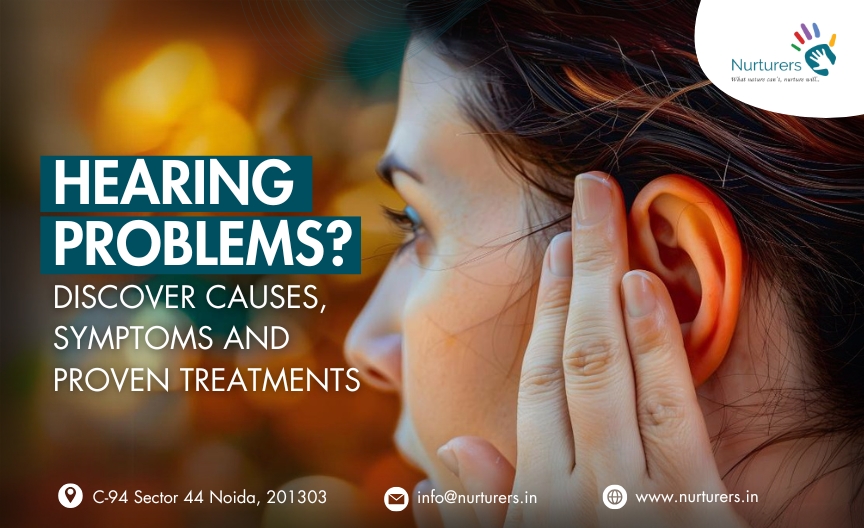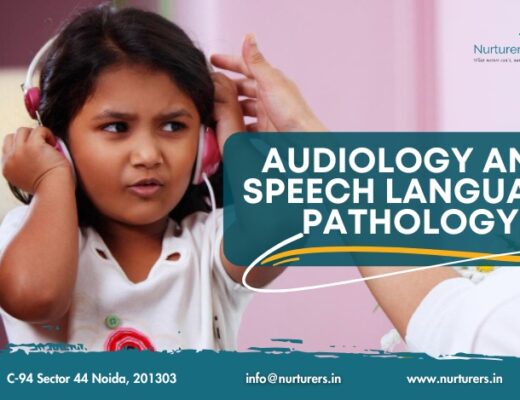
Hearing problems are a significant health concern affecting millions of people worldwide, regardless of age. While aging is a common cause, other factors like constant exposure to loud noises, infections, genetic conditions, and even injuries can contribute to hearing difficulties. Losing one’s ability to hear clearly can interfere with daily communication and participation in social activities, often causing frustration and even feelings of isolation. The sooner you address these issues, the better you’ll be able to manage them.
"Hearing loss is not the end of the world; it’s just the beginning of a different way of listening."
What is a Hearing Problem?
A hearing problem is when a person’s ability to hear sounds is reduced, affecting one ear or both. This can range from mild trouble hearing quiet sounds to more severe cases where even normal conversations are difficult to follow. The ear has three main parts—the outer, middle, and inner ear—that work together to process sound. If any part of this system is damaged, it can lead to hearing loss.

Symptoms of Hearing Problems
Recognizing the signs of hearing issues early on is important for getting the right support. Symptoms can vary depending on what’s causing the hearing loss and how severe it is, but here are some common signs:

- Difficulty Understanding Speech: One of the first signs of hearing loss is struggling to follow conversations, especially in noisy places. It may feel like people around you are mumbling or talking too softly.
- Asking for Repetition: Frequently needing others to repeat what they’ve said, particularly in social or work settings, can be a sign of hearing trouble.
- Tinnitus (Ringing in the Ears): Many people with hearing problems experience a constant ringing, buzzing, or hissing sound in their ears. While tinnitus doesn’t directly cause hearing loss, it often signals some kind of damage within the ear.
- Muffled Sounds: Sounds may seem unclear or muffled, making it difficult to tell similar words or phrases apart.
- Increasing Volume: If you often find yourself turning up the volume on the TV or phone, it might indicate hearing loss. Those around you may notice this habit before you do.
- Difficulty Hearing High-Pitched Sounds: Hearing loss often begins with trouble detecting high-pitched sounds, like alarms, birds chirping, or children’s voices.
- Social Withdrawal: People with hearing issues may avoid group conversations or social gatherings out of frustration, which can lead to feelings of isolation or even depression.
Causes of Hearing Problems
Hearing loss can occur for several reasons, and understanding the cause is essential for finding the right treatment.
- Age-Related Hearing Loss (Presbycusis): As we get older, the hair cells in the inner ear that help carry sound signals wear down, leading to hearing loss over time.
- Noise-Induced Hearing Loss: Long-term exposure to loud sounds—from concerts, construction sites, or personal audio devices—can cause permanent hearing damage. Protecting your ears in loud environments is key to preventing this type of loss.
- Ear Infections: Conditions like otitis media (middle ear infections) can cause temporary or permanent hearing loss if not treated. Other infections like mumps, measles, or meningitis can also impact hearing.
- Genetic Factors: Some people are naturally more prone to hearing loss due to inherited conditions like otosclerosis, which affects the small bones in the ear.
- Injury: Injuries to the head or ear can cause hearing loss by damaging the eardrum, ear bones, or the auditory nerve.
- Ototoxic Medications: Certain medications, such as some antibiotics or chemotherapy drugs, can cause hearing loss as a side effect.
- Congenital Hearing Loss: Some people are born with hearing loss due to complications during pregnancy or because of premature birth.
Diagnosis: Audiometry Test
An audiometry test is a straightforward way to check your Sensory perception. During the test, you’ll wear headphones and listen to a series of sounds at different pitches and volumes. All you need to do is signal when you hear each sound. The results are recorded on an audiogram, which gives a clear picture of how well you hear across various frequencies.
Audiometry tests are vital for identifying both temporary and permanent Sensory perception loss. They help audiologists recommend the best treatments, including Auditory aids if necessary.

Treatments for Hearing Problems
The right treatment for hearing issues depends on the cause and how severe it is. Here are some of the most common approaches:
- Audiometry Tests: These tests are crucial for detecting both temporary and permanent hearing loss. They give audiologists the information they need to recommend the most effective treatments, which might include hearing aids.
- Hearing Aids: These small devices make sounds louder for people with permanent hearing loss. There are several types:
- Behind-the-ear (BTE): Worn behind the ear, attached to an earpiece.
- In-the-ear (ITE): Custom-made to fit the outer ear.
- In-the-canal (ITC): Smaller than ITE and fits partially in the ear canal.
- Cochlear Implants: For more severe hearing loss, cochlear implants bypass damaged parts of the ear to directly stimulate the auditory nerve.
- Surgery: Some types of hearing loss may need surgery, such as repairing a perforated eardrum or reconstructing the small bones in the ear.
- Treating Ear Infections: If an infection is causing the hearing loss, medication may help clear the infection and restore hearing.
- Hearing Rehabilitation: Audiologists sometimes offer programs that include lip-reading and listening exercises to help people communicate better.
Conclusion
Hearing problems can greatly affect quality of life, but early diagnosis and treatment make a big difference. If you’re experiencing symptoms like difficulty understanding speech or needing to increase the volume on devices, consult an audiologist. With options like hearing aids and cochlear implants, many people can improve their hearing and lead a more fulfilling life.

Hi! I am Swati Suri, a Special Educator with 9+ years of experience and the founder of Nurturers. I am passionate about helping children with special needs and supporting their families every step of the way.
